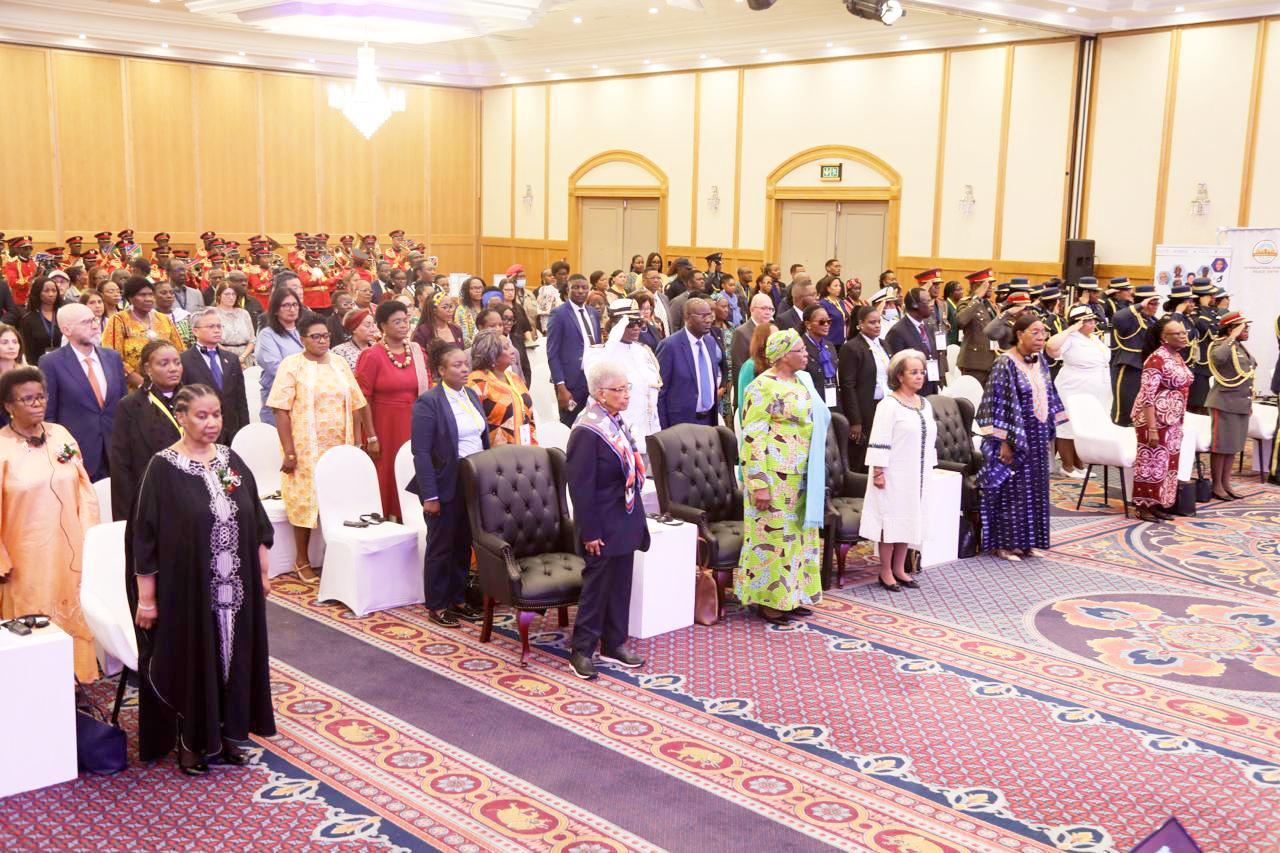Africa-Press – Namibia. President Netumbo Nandi-Ndaitwah called for global recommitment to equal and meaningful participation of women at every level of peace and security efforts.
The President addressed a high-level gathering in Windhoek yesterday to commemorate the Silver Anniversary (25 years) of the United Nations Security Council Resolution 1325 on Women, Peace and Security (WPS).
The event, attended by former female Heads of State and regional leaders, celebrated the resolution which Namibia championed during its UN Security Council Presidency in 2000. Twenty-five years after Namibia helped write history at the United Nations by championing Resolution 1325 on Women, Peace and Security, the very women who once fought in liberation struggles and now lead peace efforts returned to Windhoek not as guests, but as architects of a global movement.
The Silver Jubilee commemoration was more than a ceremony.
It was a powerful reunion of trailblazers, Heads of State, peacekeepers, diplomats and community leaders from across Africa.
They gathered to renew a promise that peace is impossible without women at the table.
The President, who is the first female Head of State of the Republic of Namibia, used the occasion to issue an urgent call for greater inclusion of women and youth in conflict resolution and peacebuilding globally.
She said Namibia holds a special place in the history of the resolution, as it was championed by the nation and adopted during its Presidency of the UN Security Council in 2000.
In a deeply personal and historic keynote address, the President set the tone by reminding the world that women have never been bystanders in Africa’s story.
President Nandi Ndaitwan recalled her own journey as a young woman in the liberation movement.
He highlighted that women were not only fighters and soldiers but also diplomats, negotiators, organisers and strategists.
“The participation of women in Namibia’s liberation struggle was not accidental but it was organic and intentional. Women voluntarily entered the liberation with the determination to end oppression in Namibia,” she said.
The President argued that Resolution 1325 did not start in 2000.
“The principles of this resolution were born from our lived experience. Women do not only suffer in conflict. They shape how conflict ends,” Nandi-Ndaitwah said.
However, she warned that 25 years later, global conflict is rising, and women still bear the brunt of war.
“Peace deals continue to exclude women as negotiators and mediators. Without women at the table, peace is neither complete nor sustainable,” the President confidently stated.
She called for implementation, not symbolism – and stressed that women’s leadership must be supported with real decision-making power, resources and protection.
Nandi-Ndaitwah spoke firmly on international justice, urging action for women in Palestine, Western Sahara the DRC and Mozambique.
“Peace is not only the absence of conflict. It is the presence of justice, dignity and inclusion,” she said.
She added that Namibia did not bring 1325 to the UN for applause but it did so for transformation.
“Let this anniversary not reflect promises made but promises kept,” remarked the President.
Ambassador Liberata Mulamula, African Union Special Envoy on Women, Peace and Security, echoed the President’s message but issued a powerful challenge.
“Women are not victims of crisis. They are architects of peace,” she said.
She warned that conflicts are now amplified by climate change, displacement and economic pressures that hit rural and indigenous women hardest.
“We cannot ignore these overlapping crises – and we cannot sideline gender equality in solving them,” Mulamula said.
She gave examples of African women leading solutions, such as women cooperatives in northern Nigeria who are replanting degraded land and mediating disputes between herders and farmers.
“This Silver Anniversary must be a renewal of action. Because when women lead, peace is not just possible, but it is powerful, lasting and real,” she stated.
Representing the Southern African Development Community (SADC), Judith Kateera, deputy executive secretary for corporate affairs, delivered a statement highlighting the region’s progress and major challenges.
She noted that the WPS agenda remains under-resourced, identifying the “Women, Peace and Security Sector (WPS) [as the least resourced sector in National budgets”.
She continued by issuing a strong appeal to member states, saying “Consequently, member states through ministries of finance, are encouraged to prioritise for Women, Peace and Security Agenda as they finalise preparation of national budgets commencing from the Year 2026”.
This financial commitment is vital because “peace is the foundation for growth and development of our economies and growth of the entire region – it is peace that promotes regional integration,” she added
Minister of International Relations and Trade Selma Ashipala-Musavyi reminded delegates that Namibia and Africa did not just participate in 1325 – they pioneered it.
“Resolution 1325 was informed by the bravery of African women who fought against slavery and colonialism,” she said during her welcoming remarks. “It was Namibia’s gift to the world in appreciation of the solidarity we received during our liberation struggle,” she stated.
She highlighted the presence of former women heads of state and peacekeepers in the room, calling them “trailblazers whose courage continues to illuminate our path”.
The minister honoured President Nandi-Ndaitwah as a symbol of what 1325 envisioned.
“Your election as Namibia’s first female President has shown that women’s leadership is not utopia – it is an unfolding reality,” she remarked.
Ashipala-Musavyi stressed that Africa’s progress is rooted in partnership – not only among women, but also with male allies.
“Our efforts would not bear fruit if our male counterparts were not willing to enable us to carve out space at the table,” she said.
For More News And Analysis About Namibia Follow Africa-Press






